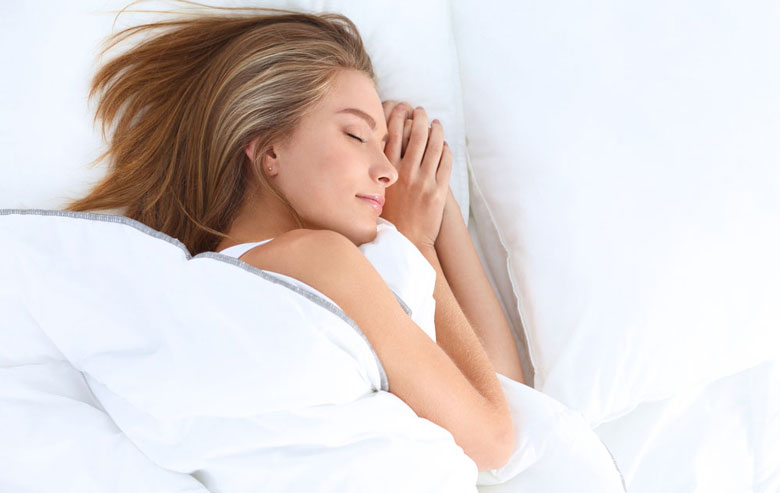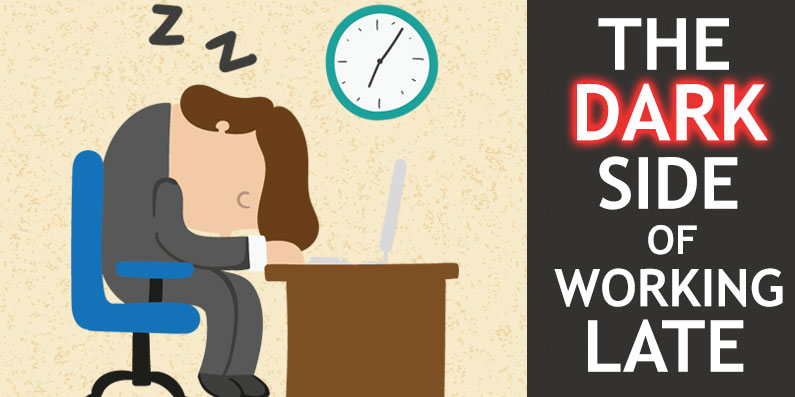It’s not uncommon that people love to work after office hours and some even like to stay up till late night for their work. Some even hate sleeping as they think ‘sleep is for the weak’.
Late night workers, or sometimes we call them as ‘night owls’, believe that they are in their peak level of productivity at night when everyone else is sleeping soundly.
Some of us may have trouble sleeping at night, and choose to utilize these time to work instead of procrastinating.
However, though sleep may be time wasting for some, it is very important that we get enough sleep in order to work efficiently.

The consequences of lacking sleep:
- Slower reaction, just like driving after you’re drunk
- Health risk – heart diseases, diabetes etc.
- Weaker immune system
- Learning things slower
Other than that, using your eyes for a prolonged period of time can also cause eye strain and sleepy eyes, which will result in poorer working performance afterwards.
Myths Buster
“I’ll sleep on my free days to cover up the sleep I’ve lost”
No you really can’t. Those hours you spent not sleeping have already caused damage to your system. You can’t sleep back 10 hours to cover back the 10 hours you’ve lost, in fact sleeping long hours are actually harmful.

“I work better at night”
This one is arguable. Some people say that they work better at night, while some work better at early hours.
This really depend on your body condition at the point of time you’re working. If you are a regular late sleeper, you’ll feel tired in the morning and thus work better at night. If your sleep at night and wake up at morning regularly just like everyone else do, you’ll feel tired at night and your performance will be lower when you’re tired.
Successful people wake up early in the morning too, so why not you do the same?
Now you know that sleeping late is definitely not good, let’s see how to sleep better.
How to Sleep Better

1. It’s recommended that most adults should get at least 7 to 9 hours of sleep every night. 7 to 9 hours of deep and quality sleep is important so that you don’t feel drowsy or still tired in the next morning.
2. Avoid screen light for at least 1 hour before you sleep. Your smartphone, laptop, TV and those screens will cause difficulty for you to get into sleep as it interferes with the production of melatonin. If your work requires you to stare at computer screen for more than 7-8 hours a day, try wearing prescription glasses that reduce eye strain or use software like f.lux.
3. Take naps. When you are feeling very tired or miss out a good night’s sleep, taking a 10-30 minutes power nap between 1PM ~ 4PM can really help. Avoid taking long nap as you will risk waking up groggier than before and it will be even worse than not having a nap at all.
4. Ditch your alarm clock if you can. Alarm is there to wake you up, but by doing so it’s also disrupting your sleep, sometimes in the middle of your dream or while you are deep sleeping. When awaken by alarm, most people feel too tired and just hit the snooze button multiple times until they are willing to get up.
Try to sleep and wake up at the same time everyday and you will get used to it eventually. Soon you will wake up naturally without your alarm, and that’s the best as your body is ready when you are awake.
Do you have your own shares of sleeping better tips to share with us? Let us know in the comments down below!
Sanz Teoh
Latest posts by Sanz Teoh (see all)
- Self-Hosting or Web Hosting in Malaysia: Which One’s Worth It? - June 30, 2025
- 7 Signs You Need a Better Web Developer Company Malaysia - June 25, 2025
- The 7 Must-Have Website Features That Bring More Patients to Your Beauty Clinic - June 15, 2025



